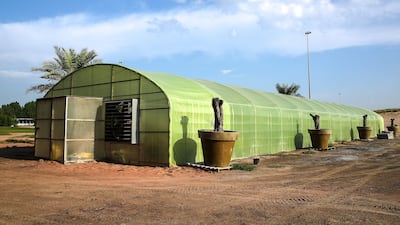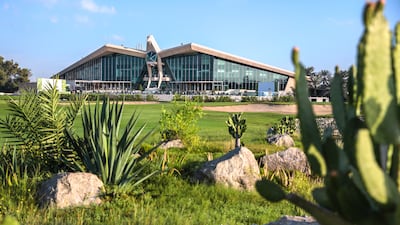End-user and investor demand for sustainable buildings has risen in the Middle East and Africa but a lack of knowledge and high initial costs are preventing the region’s green infrastructure from reaching net-zero targets, a report has said.
Occupier and investor demand for green real estate in the Middle East and Africa surged in the past year and is ahead of the global average, at 51 per cent, the Royal Institute of Chartered Surveyors (Rics) said in a report.
“The Rics global sustainability report for 2023 has shown that occupier and investment demand for green buildings has risen in the Middle East and Africa, ahead of the global average," Tina Paillet, president-elect at the institute told The National.
"However, although the appetite is growing, sustainable buildings must demonstrate multi-stage value to overcome the initial cost barrier."
The Middle East and Africa region, with GCC countries in particular, is investing heavily to build new real estate projects amid high demand from buyers.
Saudi Arabia, the Arab world’s largest economy, is building the $500 billion Neom project along the Red Sea coast while the UAE, Qatar and Oman are building commercial and residential projects as they focus on diversifying their economies.
Saudi Arabia and the UAE aim to reach their net-zero targets by 2060 and 2050, respectively.
Across the Middle East and Africa region, about three fifths of participants in the survey responded that investor demand for green buildings had risen to some extent over the past year.
The higher demand was based on the belief that the green credentials of a building have a significant impact on the capital value of a property, while a fifth believed that green features also substantially affected rental value, the survey showed.
Water efficiency is also seen as a high priority for occupiers and investors across the Middle East and Africa region.
About 40 per cent of participants in the survey said reducing water consumption was an essential feature of a sustainable building for buyers amid water scarcity challenges across the region.
A good indoor environment, air quality and “thermal comfort” are also essential aspects of a green building for end users, with 37 per cent of respondents emphasising this aspect in the survey, the report said.
Effective waste management and waste minimisation are also vital features of green buildings for both users and investors.
A substantial number of respondents across the region also believe that government regulations and policies around carbon pricing could help to support decarbonisation across the sector.
"The challenges to implementing green practices include a combination of insufficient information about green real estate from investors and limited or no embodied carbon assessment tools and government-enforced regulations," Ms Paillet said.
"Therefore, the first step to enabling the region’s green infrastructure from reaching its net-zero targets is to develop green standards because what we can measure, we can manage."














